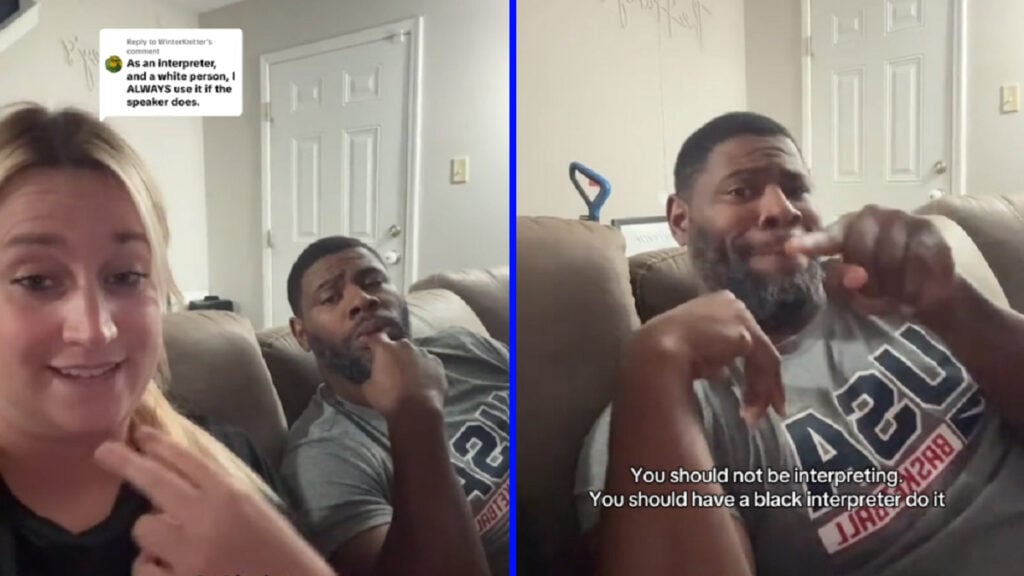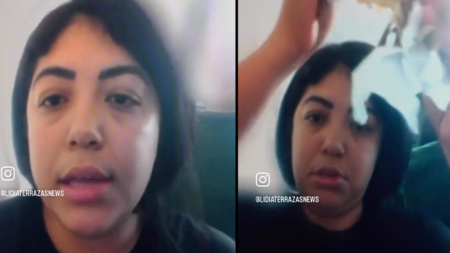American Sign Language (ALS) is incredibly vital in everything we do. From theater productions to newscasting and beyond, it plays an important role in the lives of so many people. Now, a White interpreter from North Carolina is sitting down with her Black, deaf husband to talk about an important issue: If the “n-word” is used at a concert, in a novel, or anywhere else, should a White interpreter use it in their signage or is it inappropriate to do so?
Robert and Maggie (@robert_and_maggie on TikTok) sat down and shared their opinions on the controversial subject after one person mentioned in a video, “As an interpreter, and a White person, I ALWAYS use it if the speaker does,” referring to the n-word. Maggie starts off by saying, “Several White interpreters have said they do use the word signing and voicing. What’s your opinion?” She then pans over to Robert, who suggests, “You should not say it or sign it.” When giving his reason, he says, “it’s not your place” to do so.
Maggie then makes a good point by asking, “If it’s a concert and the song tends to say that word, what should they do?” Robert responds with, “If you know the lyrics have the n-word in them a lot, you should not be interpreting. You should have a Black interpreter do it.” This seems like an incredibly fair perspective. However, Maggie does ask, “If it’s not possible to find a Black interpreter,” what then? Robert says, “Skip the word. Don’t say it or sign it. For sure the Black deaf community will come after you for that.”
Though both Maggie and Robert make some great points from both perspectives, commenters weighed in with their own thoughts as interpreters and people in the deaf community. One person shared, “An interpreter is a neutral party. Their place is not to censor or filter or anything” and then went on to say, “Deaf people deserve the same access hearing ppl do. That is it.”
Another person shared, “It’s ALWAYS up to the client. You go by the interpreter tenets until the client discusses their needs from you. My professor in college said that if we aren’t signing what’s being said, we put the client at a disadvantage.” Another interpreter chimed in, “If he doesn’t want me to while I’m interpreting for him, then fine. However, in my experience, every Black student I interpreter for wanted what they signed voice, exactly. No tweaks or changes.”
So, as you can see, it’s a difficult subject to broach because many individuals may want different things. It would make sense to find a Black interpreter at first, but if you can’t find one, what do you do then? In a desperate scenario, it may be socially acceptable to interpret everything that’s being said, no matter what.








